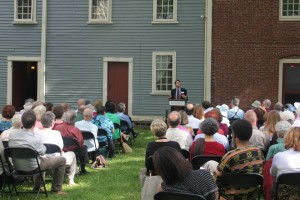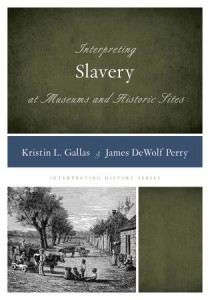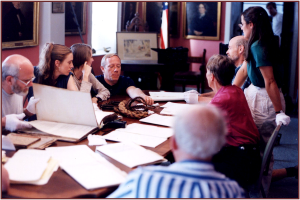Public History Programs
We educate the public about the history and legacy of slavery and race in the United States, and prepare historic sites and museums to deliver a comprehensive and conscientious interpretation of slavery to their visitors.
Our professional workshops and consultations for public history organizations, museums, and historic sites foster awareness, dialogue, and engagement, by inviting staff to explore slavery and race through multiple lenses and the links between yesterday and today.
The public history programs we offer include:
- Professional Development Workshops deepen staff knowledge about the complex history and legacy of slavery and develop skills and best practices for a balanced, sensitive interpretation of slavery
- Consultations for Museums uncover site connections to the nation’s broad involvement in slavery and develop a comprehensive and conscientious interpretation of slavery
- Public Lectures and Programs on topics including national and regional involvement in slavery, debunking pervasive myths about the role of slavery for the North and South, and the role of slavery and race in the causes, conduct, and consequences of the Civil War
 |
“The workshop challenged me to think more concertedly about the issues of race and slavery. [It] came alive in a way I would have never expected it to.” – Workshop Participant |
 We have also produced the following publications aimed at supporting the interpretation of slavery at our nation’s historic sites and museums:
We have also produced the following publications aimed at supporting the interpretation of slavery at our nation’s historic sites and museums:
- Kristin L. Gallas and James DeWolf Perry, “Developing Comprehensive and Conscientious Interpretation of Slavery at Historic Sites and Museums,” AASLH Technical Leaflet #266, part of History News 66:2 (Spring 2014)
- Kristin L. Gallas and James DeWolf Perry, editors, Interpreting Slavery at Museums and Historic Sites (Rowman & Littlefield, January 2015)
- Kristin L. Gallas and James DeWolf Perry, “Developing Comprehensive and Conscientious Interpretation of Slavery at Historic Sites and Museums,” in Max van Balgooy, ed., Interpreting African American History and Culture at Museums and Historic Sites (Rowman & Littlefield, December 2014)
For more information about these publications, you can visit the online resource page we maintain for readers, here.

The workshop “was very helpful in terms of preparation for interaction with visitors, and provided research-based strategies, lots of examples and opportunities for practice. Also helped me set a broad context for our exhibit and the many ‘connections’ that visitors may make, some positive, some not so much.”
– Workshop Participant


